Want to hear more from the actors and creators of your favorite shows and films? Subscribe to The Cinema Spot on YouTube for all of our upcoming interviews!
A life long cinephile from the Bay Area in Northern California. Aside from having written for various outlets since 2019, I've been podcasting since 2020.
(Currently Co-Hosting the Geekly Goods Roundup)
When I'm not indulged in a ridiculous amount of media consumption or losing track of days working 2 jobs, I can be found at concerts, playing basketball, or training in Mixed Martial Arts.
The Black Phone is not only one of the most hyped horror films of the summer, it is one of the most anticipated films of the year. Especially considering that it initially had a February release date, the film has definitely been quite the wait. Director Scott Derrickson is no stranger to the horror genre. He most notably thrilled audiences in 2012 with his unforgettable fan-favorite, Sinister. There was an understandable added excitement when The Black Phone was announced to be reuniting Derrickson with his Sinister star, Ethan Hawke. Based on a short story by Joe Hill, the film centers around an eerily masked man abducting children in a small Colorado town.
As a fan of Derrickson’s previous work, I am very happy to declare that The Black Phone is absolutely well worth seeing. While it isn’t his scariest film, as a chilling mystery it excels beautifully. Anchored by a subtly wicked performance by Hawke, The Black Phone succeeds with a refreshing simplicity that is well-executed.
Setting the Stage
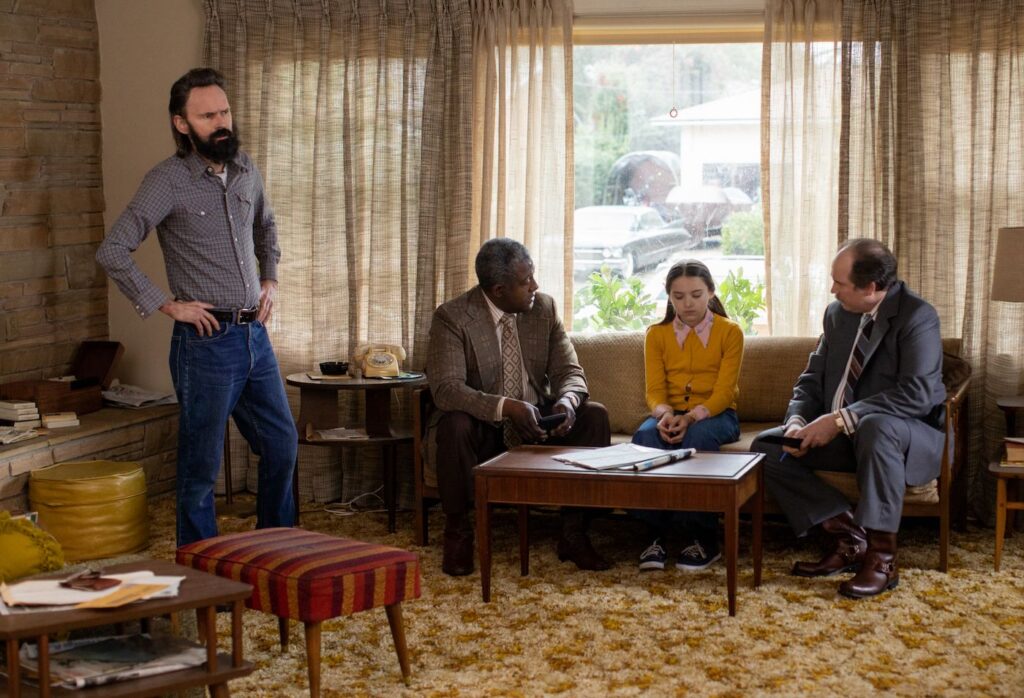
Derrickson takes his time immersing the audience into the small town sensibilities of suburban life in 1978. Supported by Patti Podesta’s excellent production design, the fine details of the ’70s pop nicely off the screen. Whether it’s the funky interior design or the retro police cars, the time period definitely leaves an imprint on the effectiveness of The Black Phone. In an era with rotary phones and no internet, it’s truly terrifying how easy it was for kids of that generation to go missing.
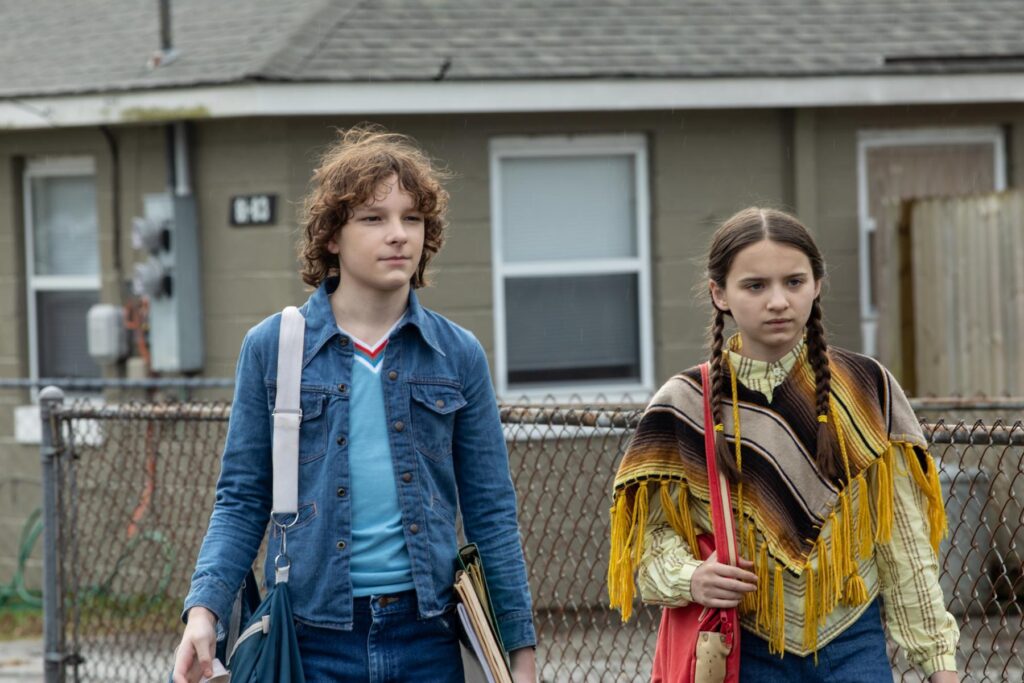
Mason Thames puts on a strong performance as protagonist Finney Shaw in his feature film debut. Our focus is drawn immediately to Finney from the jump. We learn he is a talented baseball pitcher that is unfortunately an outcast at school. One of his few friends is actually his little sister Gwen, who is admirably played by Madeline McGraw. The siblings have a natural and likable chemistry that really cements our investment in their struggle. We learn how key their relationship is over the course of the film and it’s this bond that affirms our feelings.
Living in constant fear of their abusive widowed father, they are forced to lean on each other and look out for one another. So naturally, we really feel for Gwen once Finney eventually gets kidnapped. Her worry and grief really begin to take center stage once Finney is gone.
Answering the Black Phone

The sheer terror of Finney’s actual abduction is unsettling, but The Black Phone really starts to get rolling once the phone rings. Hopelessly stranded in a soundproof basement Finney miraculously begins receiving phone calls from a phone that is not connected to a phone line. These magical calls help peel back the layers behind the missing children while also shedding a little light on the ominous “Grabber” as the kids come to call him. The aforementioned production design really shines here as we literally sit in this bleak empty basement with Finney every step of the way. Fraught with dread and with literally nowhere to go, it truly feels impossible to escape.
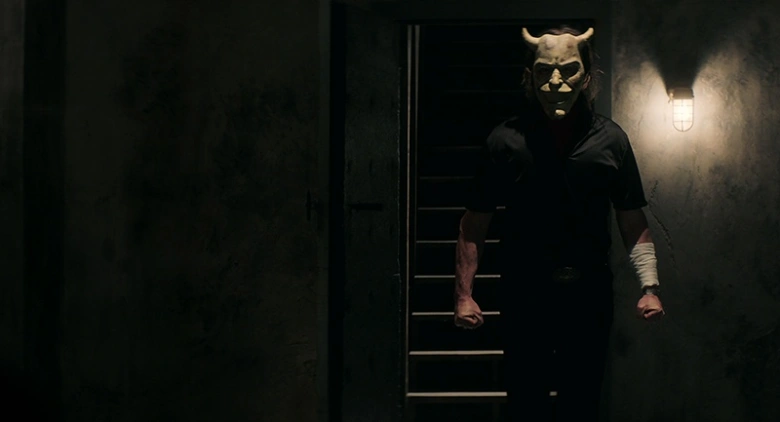
While the mysterious phone premise alone is intriguing, The Black Phone will no doubt be remembered for Ethan Hawke’s haunting portrayal of The Grabber. 2022 is shaping up to be the year of the villain for Mr. Hawke, a type of role that he has normally avoided. Hawke’s presence is immediately intimidating and menacing. With an unhinged voice and cold, calculating eyes, he truly embodies both the mental and physical aspects of a deranged individual.
The Grabber doesn’t even say a whole lot, but every time he does it’s captivating. Every single question or demand is delivered with intensity and purpose. Hawke’s demeanor and Derrickson’s vision present to us a villain that won’t soon be forgotten.
Effectively Engaging
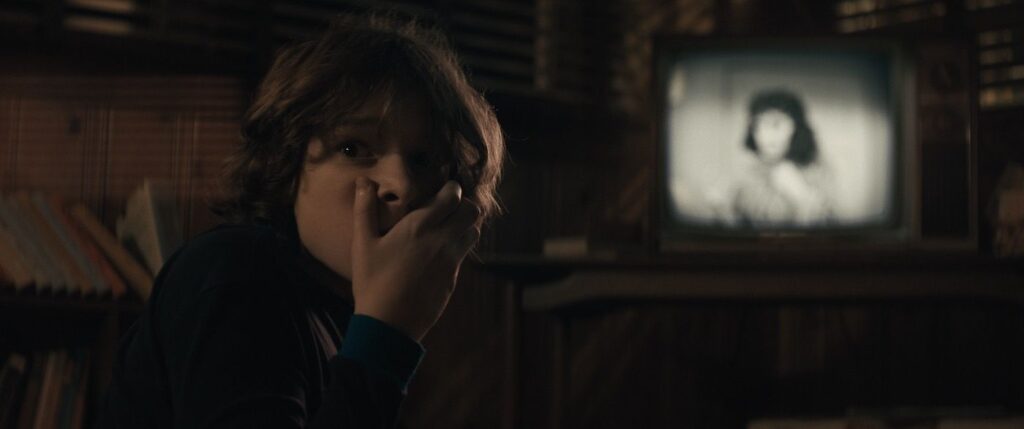
The Black Phone‘s greatest cinematic strength is creating a dynamic for the viewer to get behind Finney. Obviously, we want to see The Grabber pay for his crimes no matter how the film ends, but actually caring about Finney’s fate makes that much more of an impact.
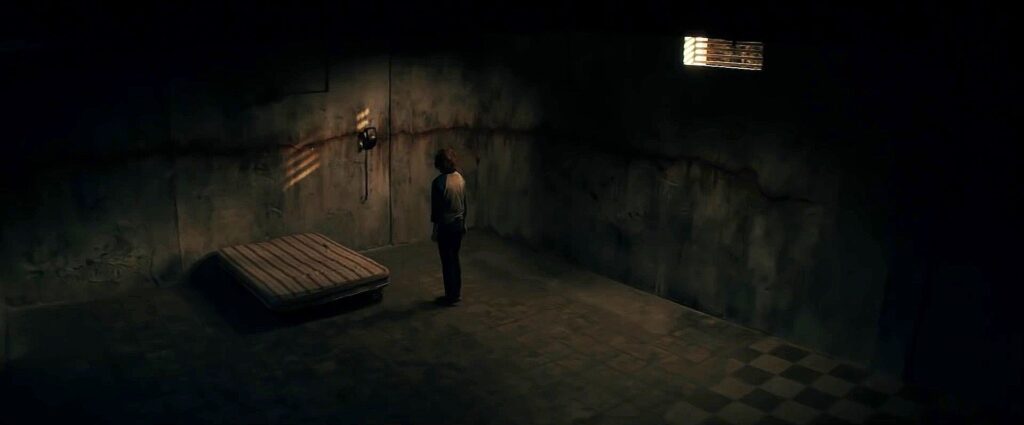
Based on even the small glimpse of trauma that we witness, Finney is worth rooting for.
Although some of the more supernatural bits get a little glossed over, it leaves more to our imagination in a positive manner. Credit to Scott Derrickson and co-screenwriter C. Robert Cargill for not cramming an extra 6 to 7 minutes of exposition into the film. Aside from ruining the solid pacing, it also would have needlessly added the chance of confusion for some viewers.
Regurgitating the old “less is more” adage for the 100th time; The Black Phone‘s simple structure enhanced the feel of the suspense. Not overstaying its welcome created a more restrained and taut experience. For more film reviews and news please be sure to visit and follow The Cinema Spot on Facebook, Twitter, and Instagram!
A life long cinephile from the Bay Area in Northern California. Aside from having written for various outlets since 2019, I've been podcasting since 2020.
(Currently Co-Hosting the Geekly Goods Roundup)
When I'm not indulged in a ridiculous amount of media consumption or losing track of days working 2 jobs, I can be found at concerts, playing basketball, or training in Mixed Martial Arts.





15 Comments on “‘The Black Phone’ Non-Spoiler Review | All Chills, No Frills”